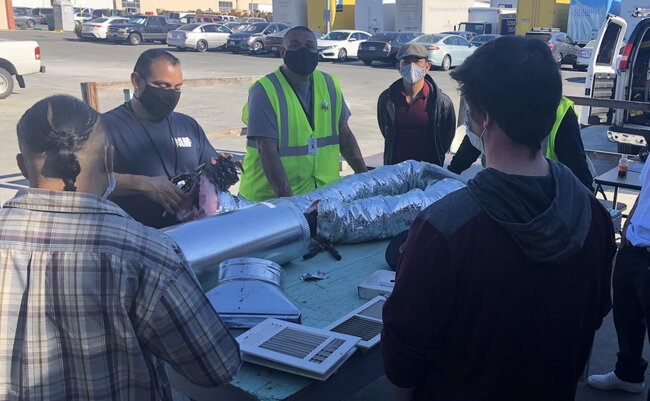SACRAMENTO, Calif. — A new book calls on states to restructure higher education and worker training, to better prepare workers battered by COVID to compete alongside robots and computers powered by artificial intelligence.
The book, entitled “Human Work in the Age of Smart Machines,” argues training should be built on uniquely human traits, such as flexibility and empathy.
Jamie Merisotis, CEO of the Lumina Foundation and the book’s author, said the COVID lockdowns have forced people to migrate both work and school online, which offers a chance to reinvent the system.
“I don’t think the old normal is what we want to go back to,” Merisotis asserted. “We want a new normal, because what we know is that people need new skills.”
The book posits soft skills like critical thinking, self-discipline and the ability to work in teams are crucial to a worker’s success, now more than ever.
Su Jin Jez, executive director of the nonprofit policy research group California Competes, said colleges and companies need to offer more paid internships so lower-income people can afford to take part.
“And some of that is about workplace learning and apprenticeships, and creating that close connection between the practical, on-the-job skills and the application of learning,” Jez stated.
Michael Mancini is director of economic development services for Catholic Charity of Santa Clara County and director of the program Bridge to Recovery, a huge new initiative to connect Bay Area workers with training and jobs, sponsored by Santa Clara County and facilitated by Catholic Charities.
“We have to do more with less during this time,” Mancini explained. “So, we have to take the resources that are in the system and use them more effectively to get our most disadvantaged populations back to work.”
The book recommends large investments in community college programs that offer associate degrees and short-term credentials, so workers in industries gutted during the lockdown, like retail and hospitality, can retrain for new careers.
Support for this reporting was provided by Lumina Foundation.






